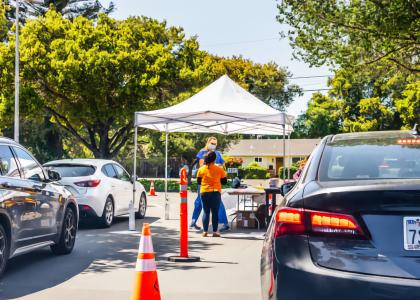NIA
Tracing the Health Consequences of Family Support during the COVID-19 Pandemic

This project fills this gap in the research creating a multidimensional contextual database linked to the Health and Retirement Study (HRS) and the Panel Study of Income Dynamics (PSID) to examine the effects of the pandemic across generations of American families. The HRS and PSID have collected data on the health and well-being of individuals and their family members for decades.
Establishing the Science Behind Alzheimer's Recruitment Registries: Opportunities for Increasing Diversity and Accelerating Enrollment Into Trials

This project will examine how information sources on COVID-19 and the larger context of the pandemic influence older adults’ perceptions of scientific research and AD, adherence to recommended COVID-19 prevention behaviors, and whether these perceptions vary by racial/ethnic group.
Impact of the COVID-19 Pandemic on Patients with Alzheimer's Disease and Alzheimer's Disease Related Dementias

In this project, we will examine the impact of changes in outpatient and inpatient care on clinical event rates and deaths among older patients with Alzheimer’s Disease and Alzheimer’s Disease Related Dementias living in the community.
A New Database to Measure the Association Between Income, Race, and Mortality: Inequality in Longevity During and Beyond the COVID-19 Pandemic Disparities

This project will build a public database of mortality rates incorporating socioeconomic and demographic variables across the U.S. population. Researchers will be able to analyze the sources of disparate impacts of COVID-19 on mortality across subgroups, with the aim of understanding how to reduce health inequality.
The Health and Economic Impacts of COVID-19 and Policy Responses

This project develops, estimates, and simulates a cutting-edge model of the health and economic impacts of the COVID-19 pandemic and policy responses to it.
Consortium Coordinating Center for Social, Behavioral, and Economic Research on COVID-19

This project creates a new independent Social, Behavioral, and Economic Research on COVID-19 Consortium Coordinating Center (SBECCC) for COVID-19 related research. The new SBECCC will include resources and support for research specific to COVID-19.
Impact of COVID-19 on Care Transitions and Health Outcomes for Vulnerable Populations in Nursing Homes and Home Healthcare Agencies (ACROSS-CARE)

The pandemic has disrupted care transitions from hospitals to home healthcare agencies and nursing homes, which may lead to important health outcomes consequences, including the widening of existing health disparities.
Toward Next Generation Data on Health and Life Changes at Older Ages

This administrative supplement continues a high-frequency longitudinal survey of Americans’ experiences and behavior during the COVID-19 pandemic to measure perceptions of coronavirus risk, individual prevention behaviors, consumption of coronavirus information from various sources, effects on households' financial situations and physical and mental health, and coping behavior of households.
National Social Life and Aging Project: Wave 4

The National Social Life, Health and Aging Project (NSHAP) is a longitudinal study of U.S. older adults focusing on the effects of social factors on trajectories of physical and mental health.
Improving Health Outcomes for an Aging Population

This project supplements an ongoing program project on “Improving Health Outcomes for an Aging Population” by analyzing the impact of the COVID-19 pandemic and its associated economic downturn on population health and mortality.